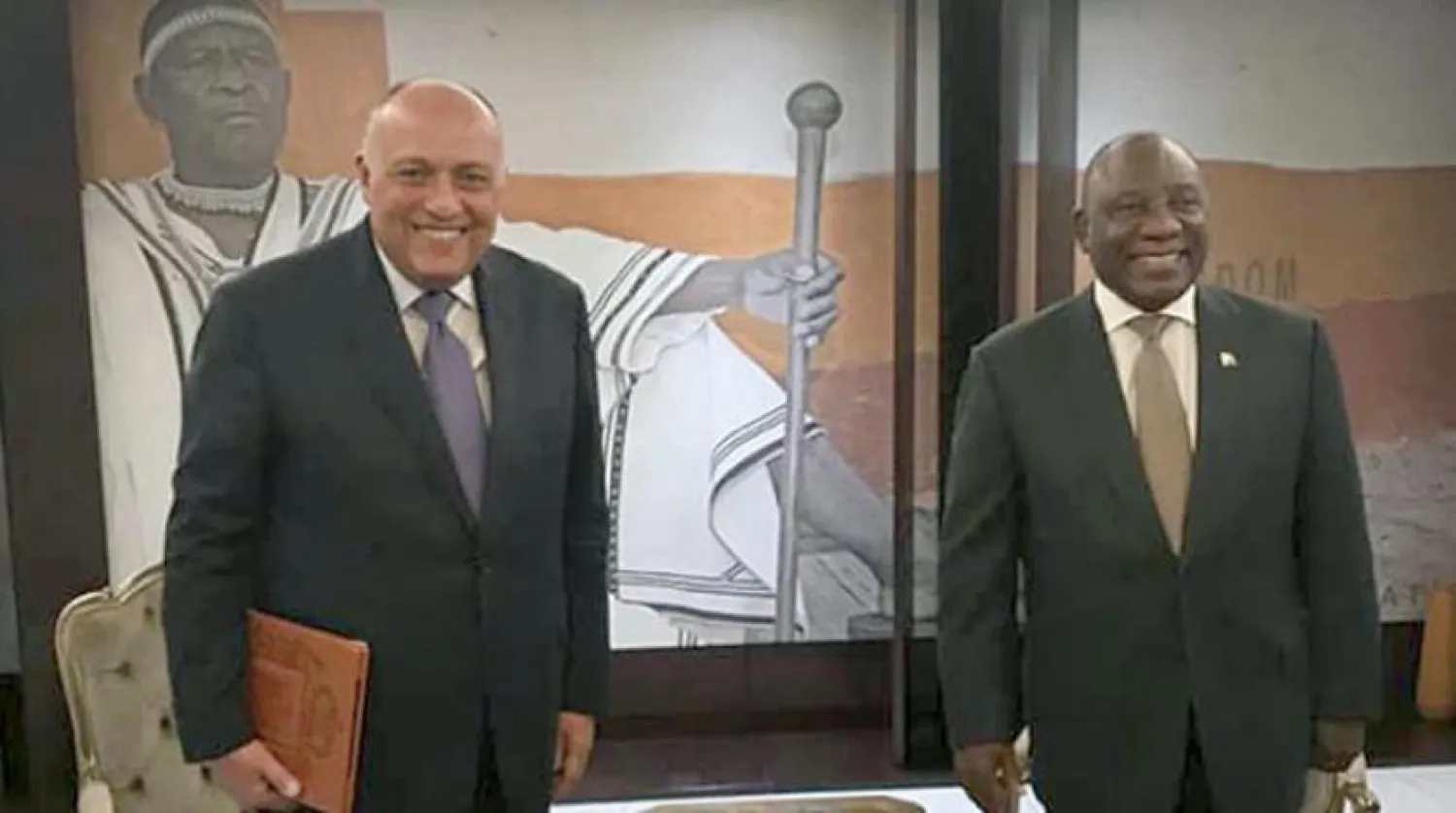Egyptian Foreign Minister Sameh Shoukry met on Wednesday with South African President Cyril Ramaphosa during the second stop of his African tour.
His visit comes in line with Egypt’s efforts to garner international support in the dispute with Ethiopia over the Nile dam after the latter skipped the talks in Washington last month.
Shoukry conveyed Ramaphosa a letter from Egyptian President Abdel Fattah el-Sisi on the developments over the Grand Ethiopian Renaissance Dam (GERD) issue.
According to Egyptian Foreign Ministry Spokesperson Counselor Ahmed Hafez, Shoukry reviewed during the meeting all the details and developments in the course of negotiations over the past five years, leading to the recent fair and balanced agreement that would achieve the interests of the three countries under US sponsorship.
While the Egyptian statement did not clarify South Africa's position on the conflict, Ramaphosa’s spokesman said the president appreciates Shoukry’s visit.
Last week, the Egyptian FM visited France and Belgium after making stops in each of Jordan, Iraq, the United Arab Emirates, Saudi Arabia, Kuwait, Bahrain, and Oman.
The negotiations aim to agree on the rules for filling and operating the dam, Addis Ababa has been constructing since 2011, to avoid a water crisis in Egypt and Sudan.
On February 9, Ramaphosa assumed the presidency of the African Union (AU) at a summit held in Addis Ababa.
Egypt relies on the Nile for up to 90 percent of its freshwater and fears the dam, which is being built in Ethiopia close to the border with Sudan, will restrict already scarce supplies.
For its part, Ethiopia says the dam will not disrupt the river’s flow and hopes the project will transform it into a power hub for the electricity-hungry region.









